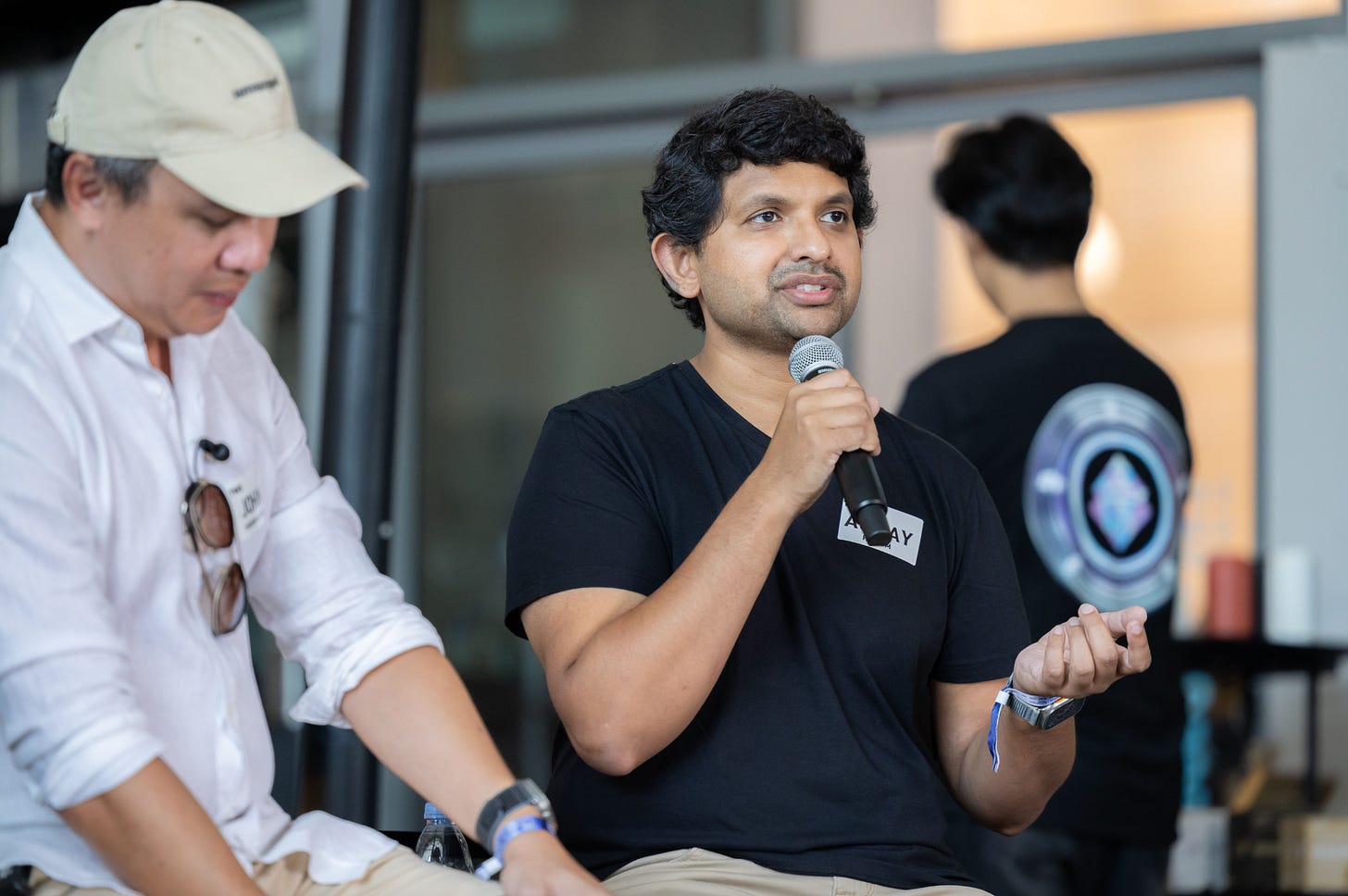CashApp to Decentralized Connectivity
How Helium's CEO, Abhay Kumar, is revolutionizing Financial Inclusion with Blockchain
In our recent "Harnessing Blockchain for Global Good” event, we had the privilege of hearing from Abhay Kumar, the CEO of Helium, who shared valuable insights on how blockchain technology can bring about real-world change. With a deep background in FinTech, including time at Square where he helped launch CashApp, Abhay brought a wealth of knowledge to the discussion on financial inclusion and social impact.
Financial Inclusion Through Decentralization
Abhay opened up about Helium’s decentralized network and how it plays a crucial role in providing financial access to underserved communities. Drawing from his experience, he stated, "Even in the United States, there is a long tail of folks who still use things like payday loans to immediately have access to cash from their day-to-day or multiple jobs that they might have." This insight revealed the pressing need for financial solutions, even in developed countries, and how blockchain can address these gaps. He emphasized that "Helium aims to bridge this gap by building a decentralized network that offers affordable connectivity solutions," which could be life-changing for many individuals who struggle to access basic financial services.
Beyond Finance: Tackling Social Issues
Abhay didn’t stop at financial inclusion; he shared examples of how Helium's network has empowered communities to solve other pressing social issues. One particularly compelling example was how Helium is being used to improve livestock tracking in Africa, helping to protect endangered species while supporting farmers’ livelihoods. "It's a very practical thing," he explained, "The cow in this case, or the livestock in this case, is sort of the center of the economy for this community." This shows how blockchain technology can have a direct, positive impact on people's everyday lives.
Additionally, Abhay shared another case where Helium's network helped during natural disasters, mentioning a project that used flood detection sensors to assist municipalities in responding more efficiently. "They had a dashboard that said, here's a place where the water level is rising. Let's send people with pumps there and clear out these garages or structures before damage occurs," he said. These examples serve as powerful illustrations of how blockchain can offer practical solutions beyond finance, addressing real-world challenges with immediate impact.
The Importance of Focus and Scalability
The importance of focusing on core strengths was another key lesson Abhay emphasized. Reflecting on Helium’s transition to the Solana blockchain, he noted, "We didn't have to carry a pager anymore for block production," which freed up the team to concentrate on their primary mission—building a wireless network. This transition enabled Helium to focus on what truly mattered, driving growth and scalability. His advice to other blockchain founders was simple yet profound: "Be a really good editor. Take all the things you're doing, and find the thing that you should be really, really spending your time on." This guidance underlines the importance of clarity and purpose in building sustainable blockchain projects.
Full Insights and More
Abhay's insights demonstrate how blockchain can be a powerful tool for driving social impact across various sectors. His experiences with Helium serve as an inspiring example of how technology, when harnessed correctly, can create meaningful change in communities worldwide.
For those interested in hearing more about Abhay's journey and Helium’s mission, be sure to check out the full panel recording for more valuable insights.


